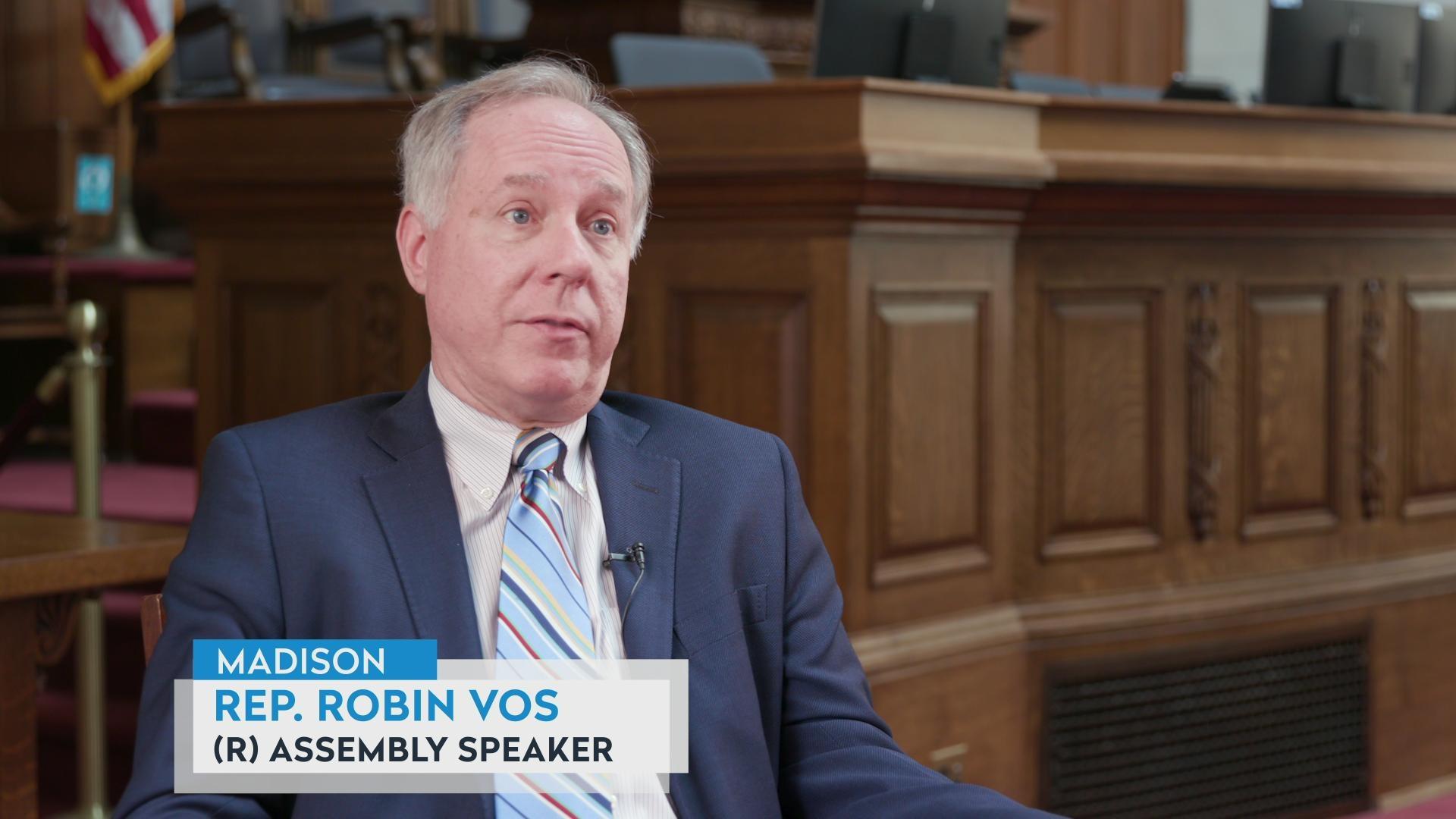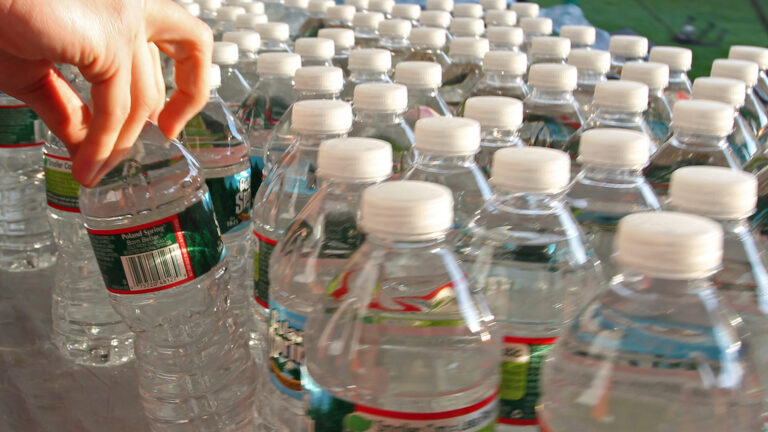Frederica Freyberg:
The Trump campaign and groups on his behalf have filed several lawsuits challenging the results of the presidential election in Wisconsin, which a final canvass and recount showed Joe Biden won by 20,682 votes. The Wisconsin Supreme Court Thursday denied Trump’s request to hear the case that focused on ballot issues challenged during the recount of Dane and Milwaukee Counties, sending it instead to a lower court, which already this afternoon held a scheduling hearing. Another Trump suit filed midweek in federal court in Milwaukee calls for the Republican-controlled Legislature to determine who won. That court also held a hearing this afternoon. Now, the cases are moving fast by necessity. December 14 marks the date when each date casts their ballots for president and vice president during a meeting of the electors. Senior Political Reporter Zac Schultz has been tracking the dizzying array of litigation. He joins us now and hi, Zac.
Zac Schultz:
Hello, Fred.
Frederica Freyberg:
So Electoral College deadlines loom. Aren’t these lawsuits causing Wisconsin to blow by them?
Zac Schultz:
Well, we have them coming up rather quickly and that’s one of the things the judges and the courts have been addressing in these rulings, is they need to move very fast and each of the campaigns needs to move fast in addressing and responding to them. There are real questions about if these get resolved in Donald Trump’s favor somehow, would they even be legitimate if they take place after next Tuesday’s safe harbor day or if they’re not resolved in time before the electors are scheduled to vote on the 14th. Since Governor Evers has already certified the electors and the slate of electors that will vote for Joe Biden for our ten electoral votes.
Frederica Freyberg:
So, as we said, a federal suit calls for the Legislature to choose the slate of electors if that time line goes by the boards. In a hearing on that case today, the judge called it a bizarre remedy for his court. Could it happen, though, that the Legislature chooses the electors?
Zac Schultz:
Only if a federal judge said that’s what happens, invalidated the entire election and gave it to the Wisconsin Legislature to decide. Wisconsin’s Republicans have already said that’s not going to happen. They’re not looking to overthrow the election in that fashion. Similar lawsuits have been filed in other close swing states and they’ve all lost on those same grounds. So in theory, sure, that’s why they’re going to court. In likelihood, very low.
Frederica Freyberg:
Now, much has been made of these unsuccessful Trump lawsuits in other states and this week, our high court rejected taking a case, but to be clear on this, not based on the facts of it, but on procedural grounds. Is that right?
Zac Schultz:
Yeah. State law says they have to go through a circuit court, the lowest county level first, before it works its way up. The Trump campaign asked for an original action in the Supreme Court. Three of the conservatives said they would have taken it. One of those said they would have asked for a lower court to do some fact finding first but ultimately a 4-3 majority decided it needed to go the circuit court route first.
Frederica Freyberg:
Justice Brian Hagedorn was the swing, voting with liberal justices to reject that Trump campaign lawsuit of which you speak and also early tonight another suit brought by an allied group was rejected by the court. Hagedorn wrote in concurrence that the remedy sought to invalidate the entire presidential election was stunning, unprecedented in American history and replete with glaring flaws. He wrote, “Something far more fundamental than the winner of Wisconsin’s elector votes is implicated in this case.” “At stake,” he said, “in some measure is faith in our system of free and fair elections, a feature central to the enduring strength of our constitutional republic.” Strong words from Justice Hagedorn.
Zac Schultz:
That’s right. What the justices are being asked to do is overturn an election is a strong thing. That’s never happened in this state as Justice Hagedorn pointed out. And we should be clear Fred, there is no allegations of voter fraud in any of these lawsuits. There’s no evidence of fraud. There hasn’t been fraud anywhere. What they’re talking about are technical irregularities that may have made some of the votes cast illegal and the question of law around whether they have been able to cast them in that manner in the first place at a ballot box or through an absentee without a formal written request or if a clerk remedied an address number or zip code, small things that have been overlooked in the past that are now being questioned, does that mean the entire ballot has to be thrown out and that’s a big hurdle for some of these justices to overcome as they’ve written in their rulings.
Frederica Freyberg:
So justices sent that other case, not to be confusing with all these cases but that asked to be heard first by the high court to a lower court on those procedural grounds, which Chief Justice Roggensack wanted to hear, saying, “we as the law-declaring court owe it to the public to declare whether the Wisconsin Elections Commission advice is incorrect. However, doing so does not necessarily lead to striking absentee ballots that were cast by following incorrect WEC advice. So the remedy petitioners seek may be out of reach for a number of reasons.” So what remedy? Tossing 200,000 ballots, thereby overturning the results?
Zac Schultz:
Yeah. And that gets right to the heart of why the Trump campaign only sought a recount in Dane and Milwaukee counties, two Democratic strongholds, because the remedy here is to toss what’s called a drawdown, a random collection of ballots from those areas, because there’s no way to link the actual ballot to what may be what they call an illegal vote in the first place. So the good, the bad, all the ballots are together. So you randomly draw them down. If you do it statewide you’re going to get a draw and you’re probably going to get the same result. You do it in Dane and Milwaukee County, take 200,000 votes out, the Trump campaign says, in their footnotes, we will win if that’s what happens.
Frederica Freyberg:
No doubt. So meanwhile at the state Capitol, Republicans are holding their own election investigation next week. We have seen this in other states. We are out of time here to talk about that now, but we will be covering it and see what comes out of that. Zac Schultz, thank you very much and thanks for covering this.
Zac Schultz:
Thank you.
Search Episodes
News Stories from PBS Wisconsin

Donate to sign up. Activate and sign in to Passport. It's that easy to help PBS Wisconsin serve your community through media that educates, inspires, and entertains.
Make your membership gift today
Only for new users: Activate Passport using your code or email address
Already a member?
Look up my account
Need some help? Go to FAQ or visit PBS Passport Help
Need help accessing PBS Wisconsin anywhere?

Online Access | Platform & Device Access | Cable or Satellite Access | Over-The-Air Access
Visit Access Guide
Need help accessing PBS Wisconsin anywhere?

Visit Our
Live TV Access Guide
Online AccessPlatform & Device Access
Cable or Satellite Access
Over-The-Air Access
Visit Access Guide
 Passport
Passport


















Follow Us